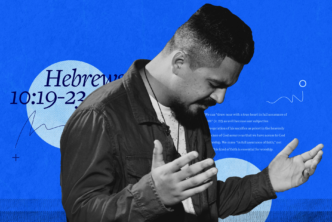The Orthodox Church remembers the apostles Peter and Paul each year on June 29, commemorating not only their divinely inspired writings in the New Testament but also their efforts as apostles of Christ.
Here are a few interesting facts about their lives and ministry:
Peter and Paul both ended their ministry as apostles in Rome
The Gospel had reached Rome before their arrival, but they both saw it necessary to journey to Rome and bring apostolic leadership to the church there. Since Peter is not mentioned by name in Romans 16, he arrived in Rome at some point afterwards, perhaps in the late ’50s or early ’60s.
Paul was called to be an apostle on the street called Straight
Acts chapter 9 tells the story of Paul’s mystical encounter with our Lord Jesus Christ. As a Pharisee, he was committed to the persecution of those following “the Way” (Acts 9:2), but was now being confronted by the Lord for his actions. “Saul, Saul, why are you persecuting me?” (Acts 9:4). In persecuting the Church, Paul was persecuting Christ himself, for the Church is his Body. Interestingly enough, this street called Straight exists to this day in Damascus, and is the headquarters of the Church of Antioch.
The apostles were at first divided over the treatment of Gentile Christians
This controversy came to a head in Antioch, where Paul opposed Peter “to his face, because he stood condemned” (Gal. 2:11). Much of the New Testament is devoted to the issue of whether one must become a Jew before one can be a true Christian, and it was a great controversy in the early decades of the Church. Paul was resolute: we are justified through our faith in Jesus Christ, regardless of one’s adherence to Jewish law (Gal. 2:15–16).
Both apostles died as martyrs in Rome
Since Paul was a Roman citizen, it seems that he was given the more “merciful” death of beheading in the mid-’60s, during the reign of Nero (Eusebius of Caesarea, Ecclesiastical History, II, XXV). St. Ignatius of Antioch is an early witness to Paul’s martyrdom (ca. AD 98–110), as he writes to the Ephesians (XII):
“Ye are initiated into the mysteries of the Gospel with Paul, the holy, the martyred, the deservedly most happy, at whose feet may I be found, when I shall attain to God; who in all his Epistles makes mention of you in Christ Jesus.”
Peter was to be crucified, and he requested that he be hung upside down, feeling unworthy to die in the same manner as Christ.
There is perhaps no better place to learn about the lives of the apostles than the New Testament itself. Check out The Eastern/Greek Orthodox Bible: New Testament and the Patriarchal Greek New Testament (PATr) to learn more about Saints Peter and Paul!




